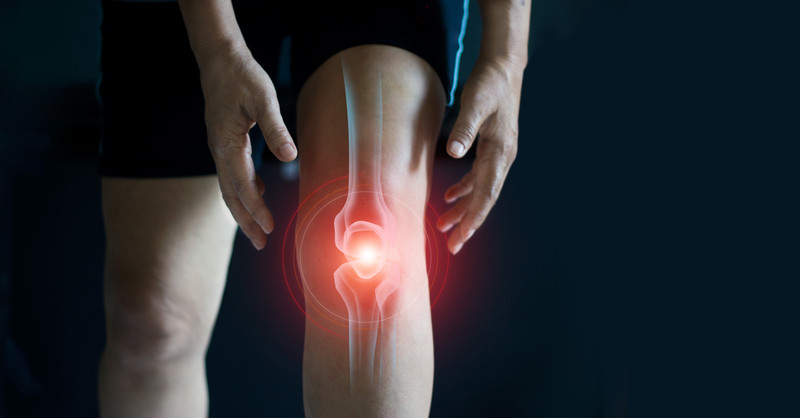Just like there is good cholesterol and bad cholesterol, or good fat and bad fat, there is also good inflammation and bad inflammation when it comes to our health and how our body functions and reacts to stimuli.
Inflammation is our body’s first line of immediate response to harmful or at least extremely annoying conditions that run the gamut along the lines of the three “i’s” – from irritation to infection to injury.
What separates “good” inflammation from “bad”? Duration. Good inflammation is short-term inflammation that works to protect and start healing the body immediately after injury, etc., while bad inflammation is the chronic variety that can lead to damage and long-term pain lasting months or years, such as arthritis. Chronic inflammation can also elevate your susceptibility to underlying conditions that might include type 2 diabetes and heart disease.
What Causes Chronic Inflammation?
Factors that might contribute to the development of chronic inflammation includes sleep deprivation, smoking, and/or lack of exercise. But what is it that causes inflammation to eventually produce a chronic condition such as disease? The answer is “cytokines,”
which are molecules that essentially trigger the immune system. When the manufacture of cytokines doesn’t stop and continues indefinitely, tissues, organs, and DNA can be affected, the latter in turn affecting cell functionality.
10 Anti-inflammatory “Superstar” Supplements
There are dozens of supplements, herbs, and other types of natural remedies popular for their anti-inflammatory capabilities, but we have narrowed it down to 10 here. These are ones that merit the label of “superstar” for their uncanny ability to wage war against “bad” inflammation, especially the chronic variety.
Before adding any of these to your daily regimen, be sure to discuss request and then follow the advice of your personal physician or other healthcare professional. This is especially true if you are already taking prescription medicine(s), regardless what health condition you are being treated for. The following are listed in alphabetical order.
Bromelain: This natural remedy and popular supplement is sourced from pineapples, bestowing on the fruit its astringency. Bromelain has been shown to possess anti-inflammatory properties and capabilities that put it on a par with NSAIDs, but without the side effects.
Cat’s Claw: This herb is sourced from an assortment of uncaria plants and has been singled out for its inclination to block the activity of an inflammatory chemical in the body known as “TNF-alpha.” One animal study also suggests cat’s claw might be able to protect against gut inflammation.
Vitamin D: Vitamin D’s role in helping to regulate inflammation involves ensuring that the inflammatory response is suitable for the level of healing needed and doesn’t exceed that role by harming surrounding tissues.
Ginger: We know that ginger is a reliable home remedy for alleviating indigestion, nausea, and morning sickness associated with pregnancies. But there’s more. Two of ginger’s components – gingerol and zingerone – can play a role in reducing inflammation for conditions such as type 2 diabetes.
Green Tea Extract: The main polyphenol found in green tea – epigallocatechin-3-gallate (EGCG) – has been identified as a potent antioxidant, bolstering its role in reducing inflammation.
Omega-3 Fatty Acids: Fatty fish such as salmon and tuna have an abundance of omega-3s that have been shown able to ward off several forms of inflammation. This includes vascular inflammation that carries with it a risk of heart disease or heart attack.
Papain: Anecdotal evidence has shown that people suffering with chronic inflammation associated with conditions such as asthma experience symptom relief after taking a papain supplement. Studies have suggested that proteolytic enzymes such as papain can dissolve pathogenic immune complexes and even prevent their formation.
Resveratrol: Resveratrol has shown promise in studies examining compounds for their potential effectiveness in reducing inflammation in patients with chronic conditions such as obesity and ulcerative colitis.
Turmeric: Chalk turmeric’s inflammation-fighting chop up to its primary component, curcumin, the bright-yellow compound known to help in diminishing chronic inflammation in conditions such as diabetes, heart disease, and inflammatory bowel disease.
Zinc: One of zinc’s earmarks as a strong anti-inflammatory is its proclivity to support the immune system and cut down on its share of inflammation markers. Studies also have demonstrated that ingesting zinc supplements might reduce infection rates by about two-thirds with older adults.
Having a general awareness of what inflammation is and the varying degrees of roles it can play in your body – a healer at one end of the spectrum and a purveyor of chronic disease at the other – will help prepare you to deal with inflammation in your body before it leads to more serious

